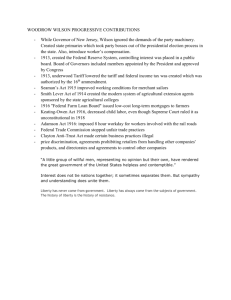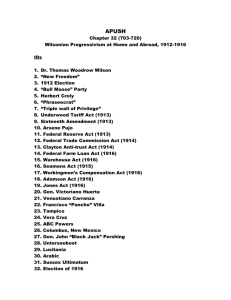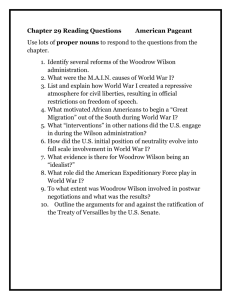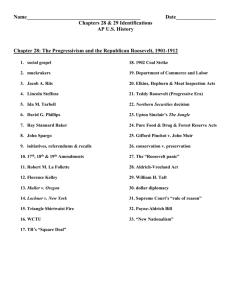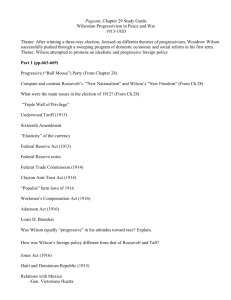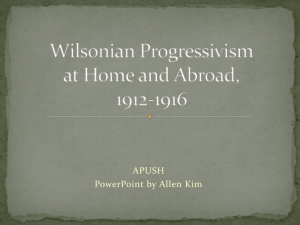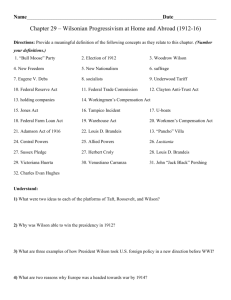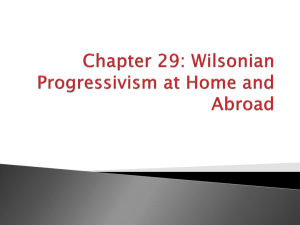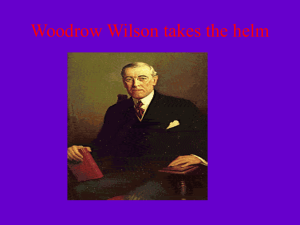Wilsonian Progressivism at Home and Abroad
advertisement
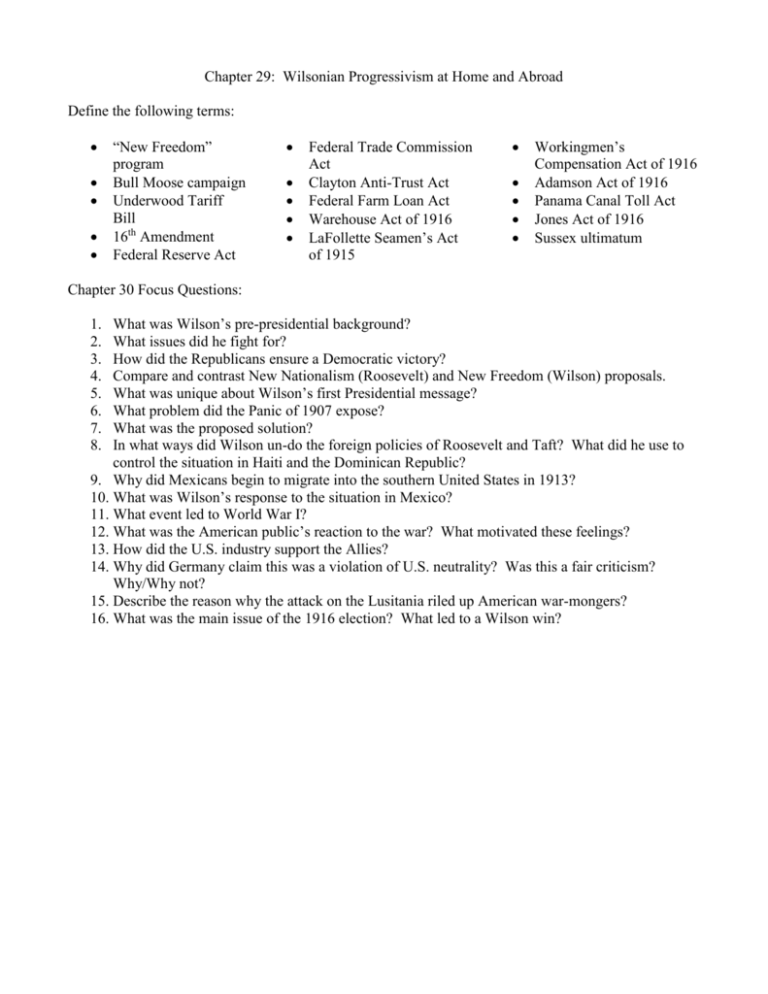
Chapter 29: Wilsonian Progressivism at Home and Abroad Define the following terms: “New Freedom” program Bull Moose campaign Underwood Tariff Bill 16th Amendment Federal Reserve Act Federal Trade Commission Act Clayton Anti-Trust Act Federal Farm Loan Act Warehouse Act of 1916 LaFollette Seamen’s Act of 1915 Workingmen’s Compensation Act of 1916 Adamson Act of 1916 Panama Canal Toll Act Jones Act of 1916 Sussex ultimatum Chapter 30 Focus Questions: What was Wilson’s pre-presidential background? What issues did he fight for? How did the Republicans ensure a Democratic victory? Compare and contrast New Nationalism (Roosevelt) and New Freedom (Wilson) proposals. What was unique about Wilson’s first Presidential message? What problem did the Panic of 1907 expose? What was the proposed solution? In what ways did Wilson un-do the foreign policies of Roosevelt and Taft? What did he use to control the situation in Haiti and the Dominican Republic? 9. Why did Mexicans begin to migrate into the southern United States in 1913? 10. What was Wilson’s response to the situation in Mexico? 11. What event led to World War I? 12. What was the American public’s reaction to the war? What motivated these feelings? 13. How did the U.S. industry support the Allies? 14. Why did Germany claim this was a violation of U.S. neutrality? Was this a fair criticism? Why/Why not? 15. Describe the reason why the attack on the Lusitania riled up American war-mongers? 16. What was the main issue of the 1916 election? What led to a Wilson win? 1. 2. 3. 4. 5. 6. 7. 8.
